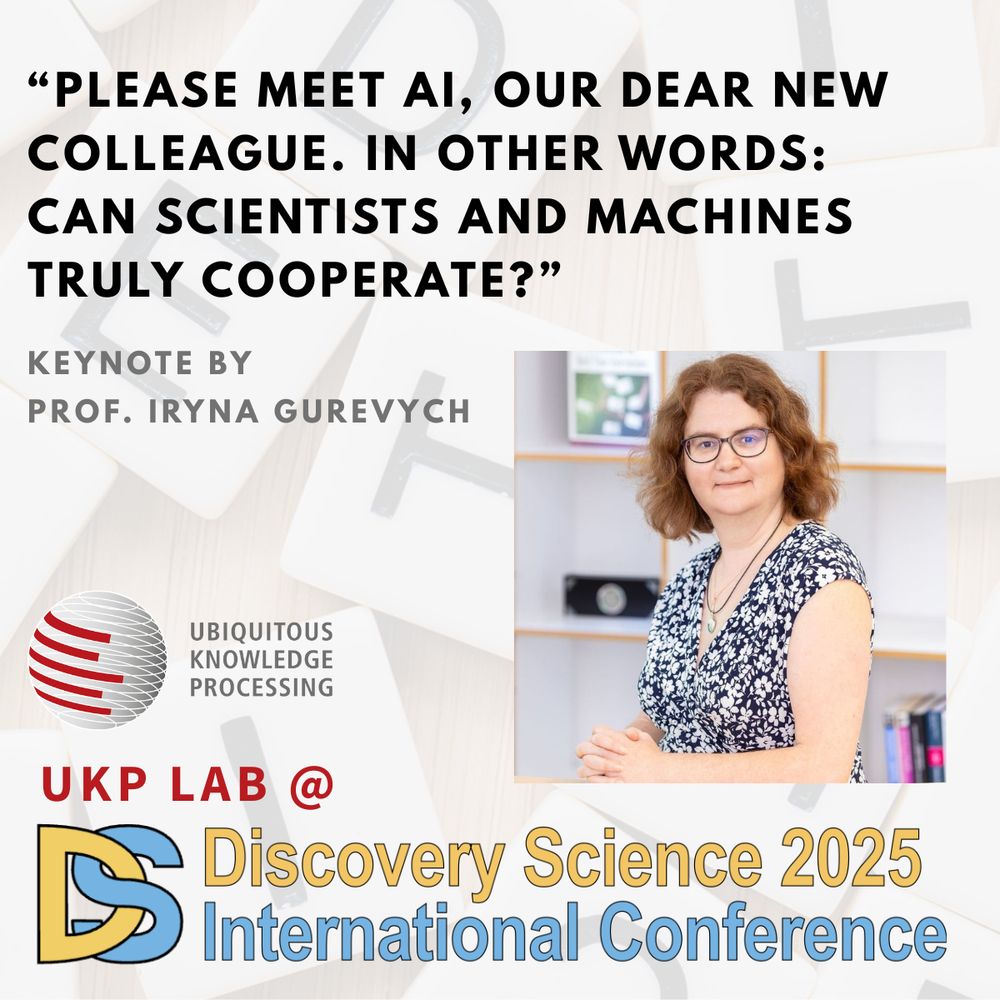UKP Lab
@ukplab.bsky.social
1.1K followers
340 following
990 posts
The Ubiquitous Knowledge Processing Lab researches Natural Language Processing (#NLProc) with a strong emphasis on Large Language Models, Conversational AI & Question Answering | @cs-tudarmstadt.bsky.social · @TUDa.bsky.social
https://www.ukp.tu-darmstadt
Posts
Media
Videos
Starter Packs
UKP Lab
@ukplab.bsky.social
· 14h
UKP Lab
@ukplab.bsky.social
· 14h
UKP Lab
@ukplab.bsky.social
· 14h
UKP Lab
@ukplab.bsky.social
· Aug 26
UKP Lab
@ukplab.bsky.social
· Aug 26
UKP Lab
@ukplab.bsky.social
· Aug 26
UKP Lab
@ukplab.bsky.social
· Aug 26













